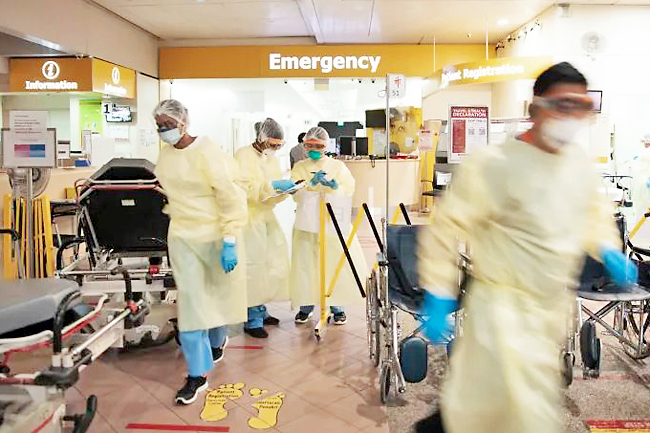ANN/CNA – Singapore’s hospitals are seeing a high number of patients whose conditions do not require emergency care, healthcare bosses said in a joint statement on Friday.
Where possible, manpower has been redeployed to better support the high attendance at hospital emergency departments, said the group chairmen of the medical boards of SingHealth, National Healthcare Group and National University Health System.
“We have been monitoring the situation closely and adjusting our response accordingly to optimise resources for both COVID-19 and non-COVID-19 patients,” said the statement.
The hospitals’ triage process includes having emergency clinicians review the cases for admissions to ensure appropriate right-siting and avoid unnecessary admission.
Since the start of the year, emergency departments have been experiencing a very high volume of patients.

“This is aggravated when there is an infection wave, such as over the past few weeks,” said the statement.
“We are working closely with the Ministry of Health to optimise and adjust capacity, resources, protocols, and manpower to care for our patients and keep our staff safe.”
The waiting time for admission at some hospitals has surged to as high as 50 hours.
To free up more capacity, some non-urgent elective surgeries and admissions are also being deferred. This will help to preserve hospital beds and manpower, said the statement.
Priority will be given to patients with more serious conditions and requiring admission. Those with potentially life-threatening or medically urgent conditions will be attended to quickly, and sicker patients who require close monitoring will get a bed sooner based on acuity and priority, they said.
Patients with lower acuity conditions will experience a longer wait time to transfer to the ward.
Inpatient care will start at the emergency department with specialty doctors reviewing, assessing and planning for the appropriate treatment before the ward transfer.
“We seek the public’s understanding that longer waiting time is expected at our emergency departments,” said the group chairmen of the medical boards.
They urged people, including children, not to visit the emergency departments unless it is for life-threatening conditions.


















































